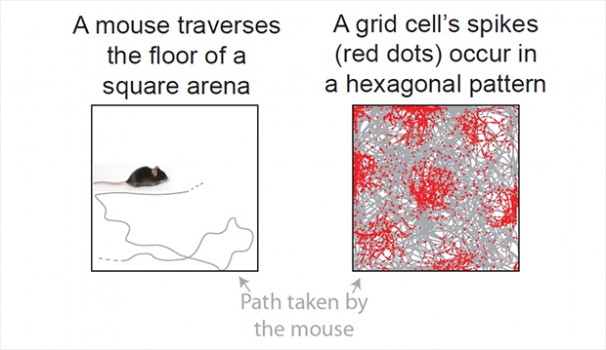
Just as a global positioning system (GPS) helps find your location, the brain has an internal system for helping determine the body’s location as it moves through its surroundings. A new study from researchers at Princeton University provides evidence for how the brain performs this feat. The study, published in the journal Nature, indicates that.. read more →
Using sea snail nerve cells, the scientists reversed memory loss by determining when the cells were primed for learning. The scientists were able to help the cells compensate for memory loss by retraining them through the use of optimized training schedules. Findings of this proof-of-principle study appear in The Journal of Neuroscience. “Although much works.. read more →
Children with dyslexia may read better after playing action video games that stress mayhem, not literacy, a contested study suggests. Playing fast-paced Wii video games for 12 hours over two weeks markedly increased the reading speed of 7- to 13-year-old kids with dyslexia, with no loss of reading accuracy, says a team led by psychologist.. read more →
The results of these projects suggest the future potential for linking multiple brains to form what the research team is calling an “organic computer,” which could allow sharing of motor and sensory information among groups of animals. The study was published Feb. 28, 2013, in the journal Scientific Reports. “Our previous studies with brain-machine interfaces.. read more →
This study sought to investigate the attentional demands while performing a blind navigation task in young and elderly subjects. Fourteen subjects of age 20 to 32 years and 10 subjects of age 62 to 80 years participated in the experience. Blinded navigation task consisted of visually identifying and then walking blindly towards a target 8.. read more →
Researchers at XenoBiotic Laboratories are using cryo-imaging and quantitative autoradiography to provide quantitative tissue distribution data as part of a preclinical ADME program. Autoradioluminograms placed through 3D reconstructed organs are highlighted in this video. read more →
Signs of depression can be turned on and off in mice with the flip of a switch. Activating or silencing the behavior of certain brain cells with laser light causes the animals to change their depressive behavior, two new studies find. Although the experiments were done in rodents, the results have direct relevance to human.. read more →
A woman who is paralysed from the neck down has stunned doctors with her extraordinary skill at using a robotic arm that is controlled by her thoughts alone. The 52-year-old patient, called Jan, lost the use of her limbs more than 10 years ago to a degenerative disease that damaged her spinal cord. The disruption.. read more →
A team of University of Minnesota biomedical engineers and researchers from Mayo Clinic published a groundbreaking study today that outlines how a new type of non-invasive brain scan taken immediately after a seizure gives additional insight into possible causes and treatments for epilepsy patients. The new findings could specifically benefit millions of people who are.. read more →
Blind people could soon be able to read street signs using an implant that translates the alphabet into Braille and beams an image of the Braille directly to visual neurons at the back of the eye. The implant is a modified version of a class of devices called retinal prostheses, which are used to restore.. read more →
